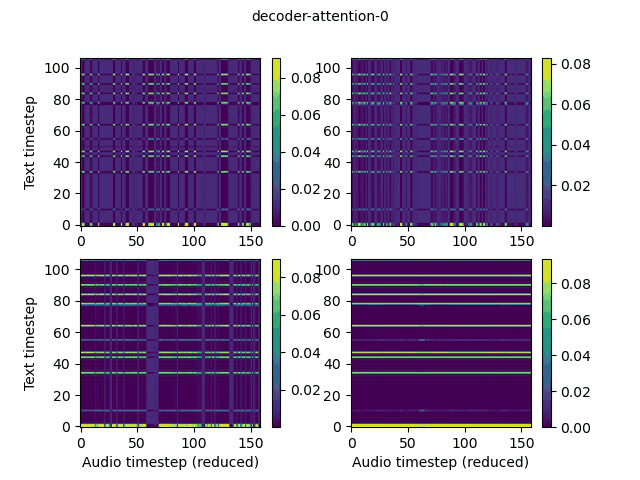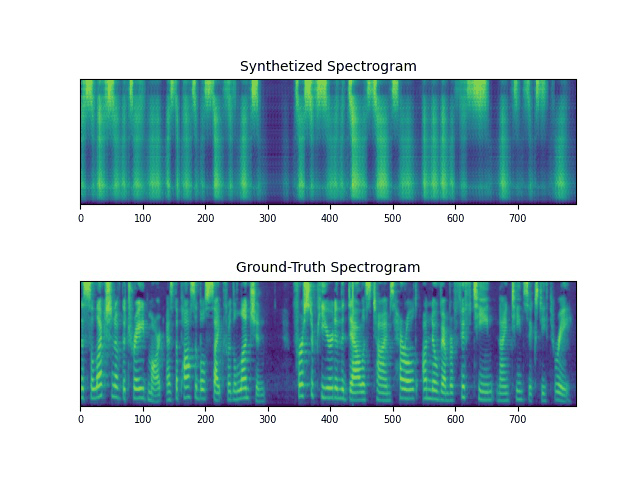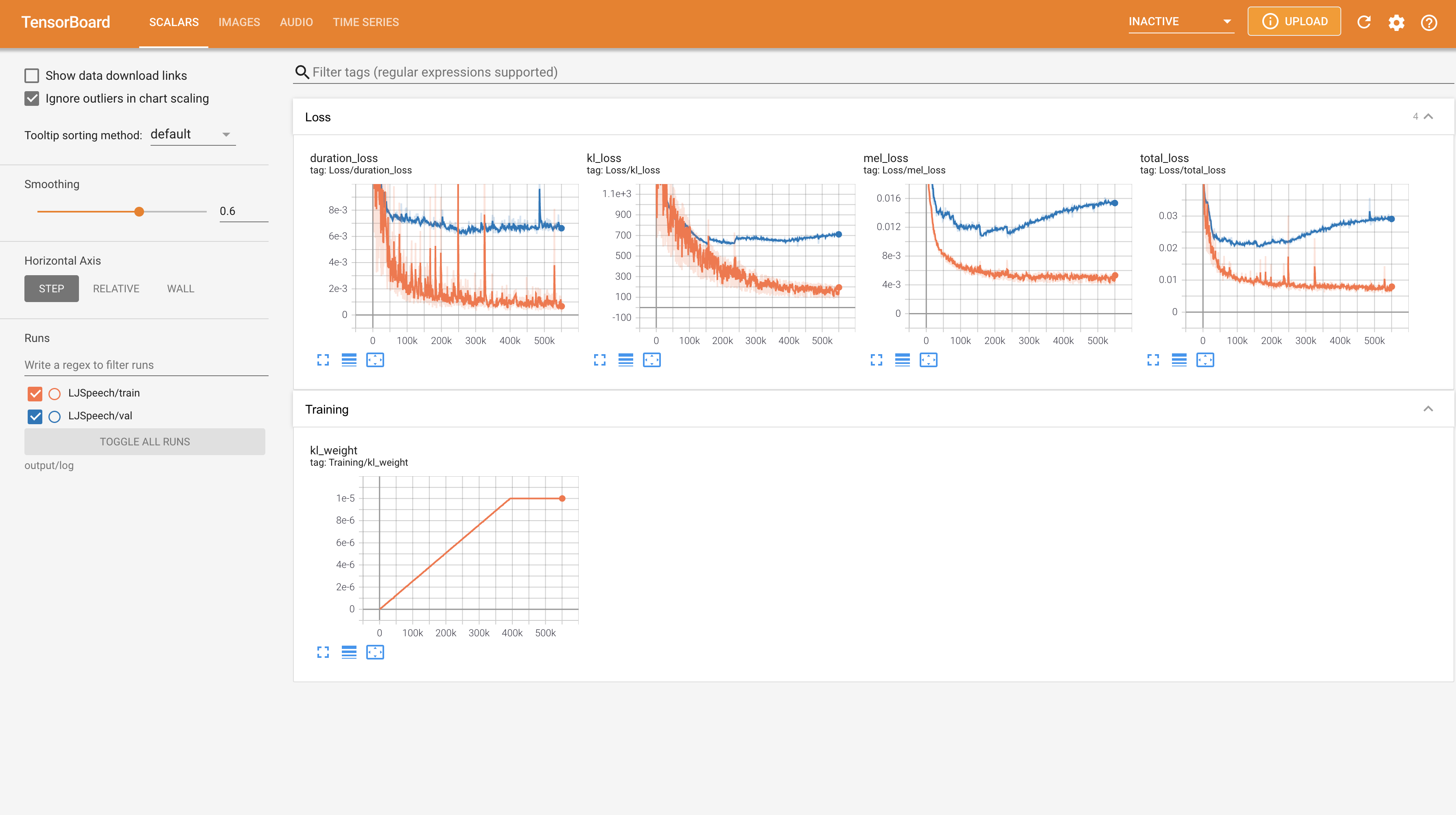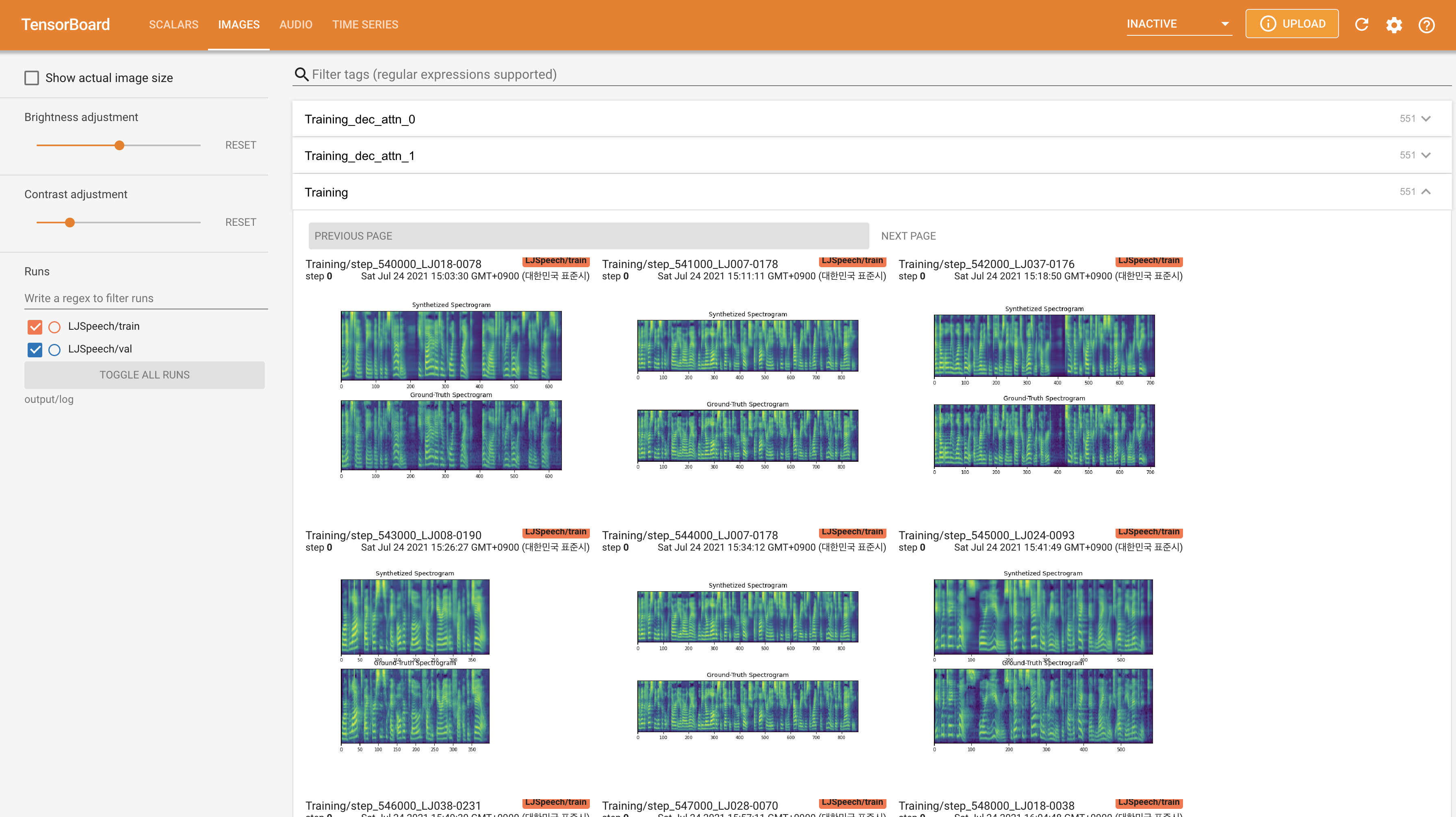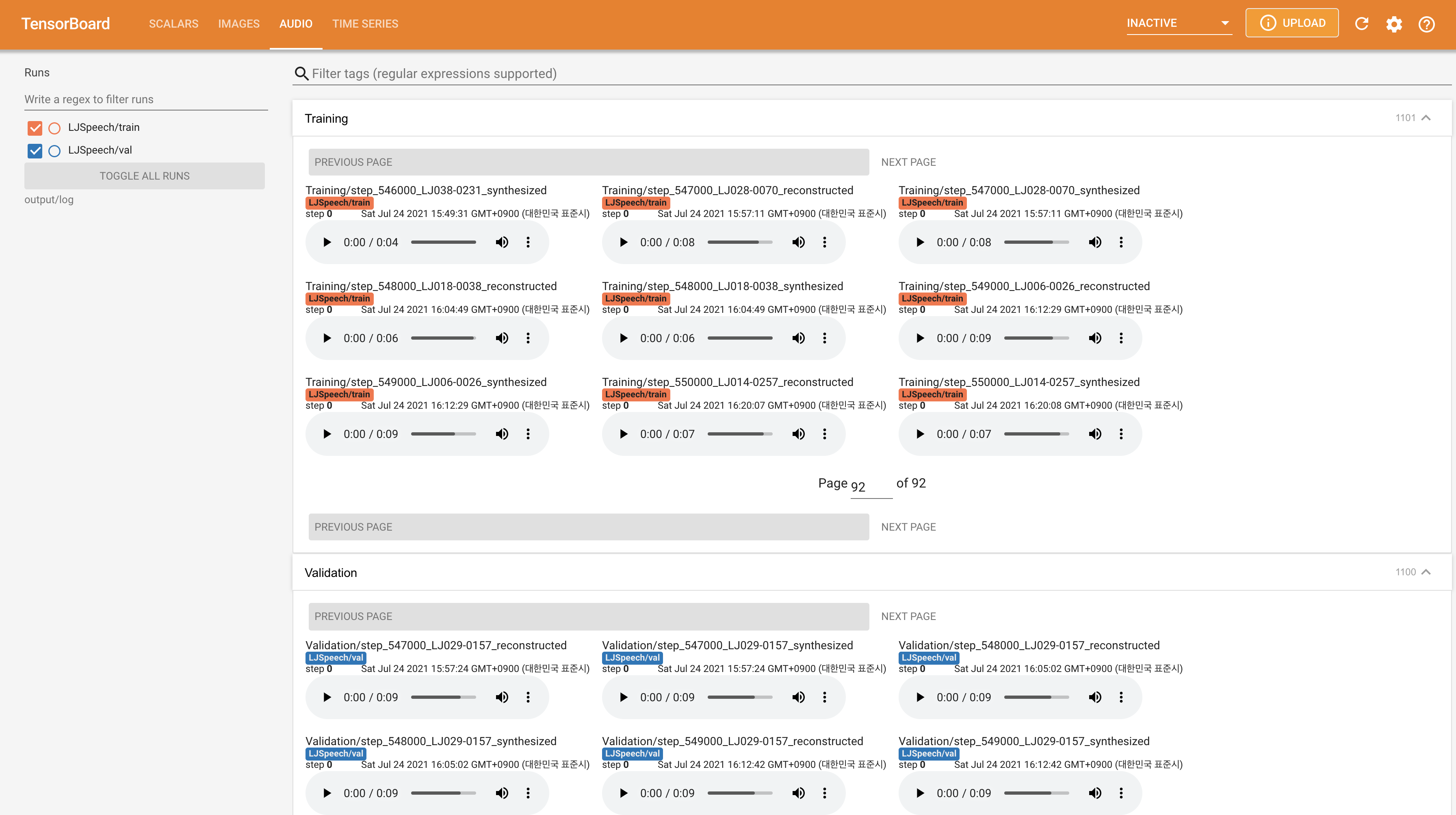PyTorch Implementation of VAENAR-TTS: Variational Auto-Encoder based Non-AutoRegressive Text-to-Speech Synthesis.
The validation logs up to 70K of synthesized mel and alignment are shown below (LJSpeech_val_dec_attn_0_LJ029-0157 and LJSpeech_val_step_LJ029-0157 from top to bottom).
You can install the Python dependencies with
pip3 install -r requirements.txt
You have to download the pretrained models and put them in output/ckpt/LJSpeech/.
For English single-speaker TTS, run
python3 synthesize.py --text "YOUR_DESIRED_TEXT" --restore_step RESTORE_STEP --mode single -p config/LJSpeech/preprocess.yaml -m config/LJSpeech/model.yaml -t config/LJSpeech/train.yaml
The generated utterances will be put in output/result/.
Batch inference is also supported, try
python3 synthesize.py --source preprocessed_data/LJSpeech/val.txt --restore_step RESTORE_STEP --mode batch -p config/LJSpeech/preprocess.yaml -m config/LJSpeech/model.yaml -t config/LJSpeech/train.yaml
to synthesize all utterances in preprocessed_data/LJSpeech/val.txt
The supported datasets are
- LJSpeech: a single-speaker English dataset consists of 13100 short audio clips of a female speaker reading passages from 7 non-fiction books, approximately 24 hours in total.
First, run
python3 prepare_align.py config/LJSpeech/preprocess.yaml
for some preparations. And then run the preprocessing script.
python3 preprocess.py config/LJSpeech/preprocess.yaml
Train your model with
python3 train.py -p config/LJSpeech/preprocess.yaml -m config/LJSpeech/model.yaml -t config/LJSpeech/train.yaml
Use
tensorboard --logdir output/log/LJSpeech
to serve TensorBoard on your localhost. The loss curves, synthesized mel-spectrograms, and audios are shown.
- Removed arguments, methods during converting Tensorflow to PyTorch: name, kwargs, training, get_config()
- Specify
in_featuresin LinearNorm which is corresponding totf.keras.layers.Dense. Also,in_channelsis explicitly specified in Conv1D. - get_mask_from_lengths() function returns logical not of that of FastSpeech2.
- In this implementation, the
griffin_limalgorithms is used to convert a mel-spectrogram to a waveform. You can use HiFi-GAN as a vocoder by setting config, but you need to train it from scratch (you cannot use the provided pre-trained HiFi-GAN model).
@misc{lee2021vaenar-tts,
author = {Lee, Keon},
title = {VAENAR-TTS},
year = {2021},
publisher = {GitHub},
journal = {GitHub repository},
howpublished = {\url{https://github.com/keonlee9420/VAENAR-TTS}}
}

